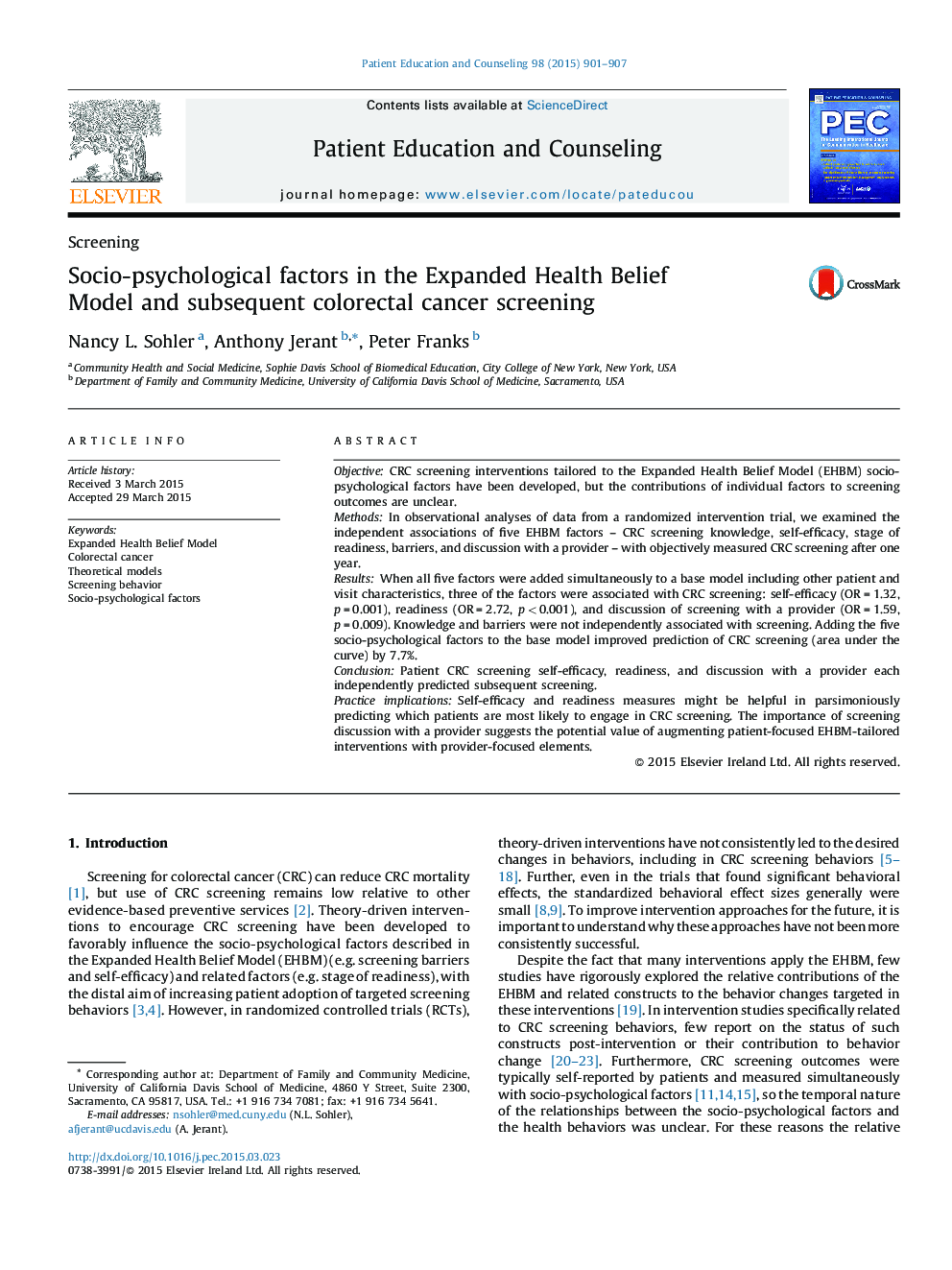| کد مقاله | کد نشریه | سال انتشار | مقاله انگلیسی | نسخه تمام متن |
|---|---|---|---|---|
| 6153572 | 1246032 | 2015 | 7 صفحه PDF | دانلود رایگان |
- Tested association between Expanded Health Belief Model factors and colorectal cancer screening.
- Self-efficacy, stage of readiness, and discussions with provider were associated with screening.
- Neither barriers nor knowledge were statistically significantly associated with screening.
- Data are useful in parsimoniously predicting patients most likely to engage in CRC screening.
ObjectiveCRC screening interventions tailored to the Expanded Health Belief Model (EHBM) socio-psychological factors have been developed, but the contributions of individual factors to screening outcomes are unclear.MethodsIn observational analyses of data from a randomized intervention trial, we examined the independent associations of five EHBM factors - CRC screening knowledge, self-efficacy, stage of readiness, barriers, and discussion with a provider - with objectively measured CRC screening after one year.ResultsWhen all five factors were added simultaneously to a base model including other patient and visit characteristics, three of the factors were associated with CRC screening: self-efficacy (OR = 1.32, p = 0.001), readiness (OR = 2.72, p < 0.001), and discussion of screening with a provider (OR = 1.59, p = 0.009). Knowledge and barriers were not independently associated with screening. Adding the five socio-psychological factors to the base model improved prediction of CRC screening (area under the curve) by 7.7%.ConclusionPatient CRC screening self-efficacy, readiness, and discussion with a provider each independently predicted subsequent screening.Practice implicationsSelf-efficacy and readiness measures might be helpful in parsimoniously predicting which patients are most likely to engage in CRC screening. The importance of screening discussion with a provider suggests the potential value of augmenting patient-focused EHBM-tailored interventions with provider-focused elements.
Journal: Patient Education and Counseling - Volume 98, Issue 7, July 2015, Pages 901-907
